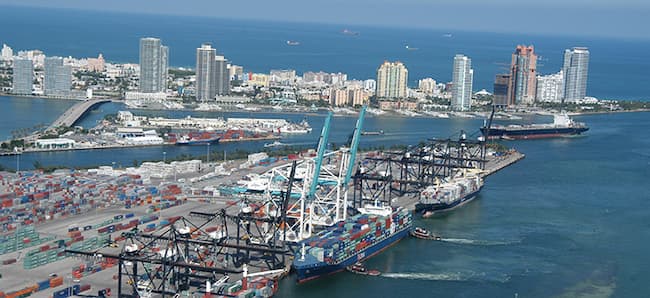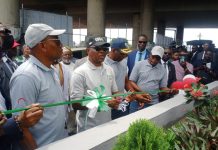Work on the Badagry Deep Seaport has been slowed down by due processes, this is according to the Badagry Federal Constituency representative, Babatunde Hunpe.
Hunpe, during the presentation of relief materials to Internally Displaced Persons (IDPs) in Lagos by the Nigerian Maritime Administration and Safety Agency (NIMASA), assured the host communities that the project was still “on course”.
He explained, “I want to assure my people that the Badagry Deep Seaport project is on course. When one starts a project, people expect it to come very quickly but there are processes to follow.
“It is because of these processes to be taken that the project is delayed.
“This project has been on since 2016 and presently, the story is as it is and I have been going on with the issue.
“I met the former Managing Director of Nigerian Ports Authority (NPA), we had a long discussion and she disclosed the level that they were, which gave the assurance that the project was coming up.
“I have also seen some steps taken by the NPA and I was able to get this because I am a member of the committee on special duties and so, I have the privilege to know what they are doing.
“The reason the government is repairing the Badagry road is to also serve the Deep Seaport project and the many countries connected by the road to aid the evacuation of cargoes.
READ ALSO: COVID-19 Reduced Diasporan Remittances By $5bn – NIDCOM
“We are appealing to the Federal Government to put more effort to ensure that the road is completed on time.”
About the Badagry Deep Seaport
The Badagry Deep Seaport project began in 2016 and is set to be the largest deep seaport on the African continent.
Despite the completion date initially set for 2018, various setbacks have kept the project from reaching completion.
The project is supported through a public-private partnership (PPP) with the involvement of the Federal Ministry of Transport, Trade and Investment, and the Lagos State Government.
Estimations put the cost of the project between $2 billion and $3 billion, and it is to be executed in four phases.











